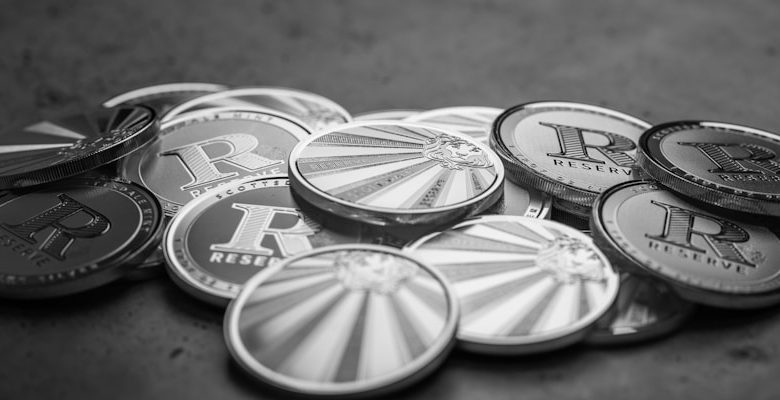Governance in DeFi: The Role of Token Holders

- Understanding the power dynamics in DeFi governance
- Exploring the responsibilities of token holders in decentralized finance
- The impact of token holder decisions on DeFi protocols
- Challenges faced by token holders in governing decentralized platforms
- The role of voting rights in shaping the future of DeFi
- Strategies for effective participation in DeFi governance as a token holder
Understanding the power dynamics in DeFi governance
In the decentralized finance (DeFi) ecosystem, governance plays a crucial role in decision-making processes. Token holders have the power to vote on proposals that can impact the future direction of a project. Understanding the power dynamics in DeFi governance is essential for token holders to make informed decisions.
One key aspect of power dynamics in DeFi governance is the concept of voting power. Token holders with a larger stake in the project typically have more voting power than those with a smaller stake. This means that their votes carry more weight and can have a greater impact on the outcome of a proposal.
Another important factor to consider is the distribution of tokens among holders. If a small group of holders controls a significant portion of the tokens, they may be able to influence decisions in their favor. This concentration of power can lead to potential conflicts of interest and impact the overall fairness of the governance process.
It is crucial for token holders to be aware of these power dynamics and actively participate in governance processes to ensure that decisions are made in the best interest of the community as a whole. By staying informed, engaging in discussions, and voting on proposals, token holders can help shape the future of DeFi projects and contribute to their long-term success.
Exploring the responsibilities of token holders in decentralized finance
Token holders in decentralized finance (DeFi) platforms play a crucial role in governing the ecosystem. As the owners of the governance tokens, they have the responsibility to participate actively in decision-making processes that affect the future of the protocol. This involvement includes voting on proposals, suggesting improvements, and monitoring the overall health of the platform.
One of the primary responsibilities of token holders is to stay informed about the latest developments and discussions within the community. By keeping up-to-date with the governance forums and communication channels, token holders can make well-informed decisions when it comes to voting on proposals. This active engagement is essential for maintaining a transparent and democratic governance process.
Furthermore, token holders need to consider the long-term sustainability and growth of the DeFi platform. This means evaluating proposals not just based on short-term gains, but also on how they align with the overall vision and values of the ecosystem. Token holders should prioritize the interests of the community as a whole, rather than individual gains.
In addition to voting on proposals, token holders can also contribute to the governance process by proposing ideas, providing feedback, and engaging in discussions with other community members. This collaborative approach can lead to better decision-making and ultimately strengthen the resilience of the DeFi platform.
The impact of token holder decisions on DeFi protocols
Token holder decisions play a crucial role in shaping the governance of decentralized finance (DeFi) protocols. The choices made by token holders can have a significant impact on the direction and development of these protocols. As key stakeholders, token holders have the power to vote on proposals, such as changes to protocol parameters, upgrades, or new features. Their decisions can influence the overall functionality and security of the DeFi ecosystem.
Token holder decisions are typically made through a voting process, where each token holder has a certain number of votes based on the amount of tokens they hold. This means that token holders with a larger stake in the protocol have more influence over the decision-making process. It is essential for token holders to stay informed about the proposals being put forward and to actively participate in the voting process to ensure that their interests are represented.
The impact of token holder decisions on DeFi protocols can be far-reaching. For example, a decision to implement a new feature could enhance the usability of the protocol and attract more users, leading to increased adoption and value of the underlying token. On the other hand, a decision to reject a proposal could result in missed opportunities for growth and innovation. Therefore, it is crucial for token holders to carefully consider the potential implications of their decisions and to weigh the benefits and risks before voting on a proposal.
In conclusion, token holders play a vital role in the governance of DeFi protocols. Their decisions can shape the future of these protocols and have a direct impact on the entire ecosystem. By actively participating in the voting process and staying informed about proposals, token holders can help ensure the continued success and growth of the DeFi industry.
Challenges faced by token holders in governing decentralized platforms
Token holders in decentralized platforms face various challenges when it comes to governing the system. One of the primary challenges is the lack of centralized authority or decision-making structure, which can make it difficult for token holders to reach a consensus on important governance issues. This decentralized nature can lead to disagreements and delays in decision-making processes.
Another challenge faced by token holders is the potential for governance attacks or manipulation by large token holders. These whales, or large holders of tokens, may have a disproportionate amount of influence over the decision-making process, which can undermine the principles of decentralization and fairness in governance.
Furthermore, token holders may struggle to stay informed and engaged in the governance process due to the complexity of decentralized platforms and the technical knowledge required to understand and participate effectively. This lack of understanding can lead to apathy or disengagement among token holders, which can hinder the effectiveness of governance mechanisms.
In addition, token holders may face challenges in coordinating and organizing themselves to take collective action in governing the platform. Without a centralized authority to facilitate communication and decision-making, token holders must rely on decentralized tools and mechanisms to coordinate their efforts, which can be challenging and time-consuming.
Overall, the challenges faced by token holders in governing decentralized platforms highlight the need for robust governance mechanisms that address issues of centralization, influence, engagement, and coordination. By addressing these challenges, token holders can effectively govern decentralized platforms and ensure the integrity and sustainability of the system.
The role of voting rights in shaping the future of DeFi
Voting rights play a crucial role in determining the future direction of decentralized finance (DeFi) projects. Token holders have the power to influence key decisions such as protocol upgrades, changes to governance structures, and the allocation of funds. By participating in voting processes, token holders can shape the trajectory of the project and ensure that their interests are represented.
Token holders can vote on a wide range of proposals, including changes to smart contracts, the addition of new features, and the distribution of rewards. Through their voting rights, token holders can help to maintain the integrity and security of the DeFi ecosystem, as well as drive innovation and growth. The decisions made through voting processes can have a significant impact on the overall success of a project.
Furthermore, voting rights allow token holders to hold project teams and developers accountable for their actions. By participating in governance processes, token holders can ensure transparency and fairness within the project. This level of accountability helps to build trust among community members and fosters a sense of collaboration and shared ownership.
In conclusion, the role of voting rights in shaping the future of DeFi cannot be overstated. Token holders have the opportunity to play an active role in the governance of projects, influencing key decisions and ensuring that their voices are heard. By exercising their voting rights responsibly, token holders can help to create a more inclusive and sustainable DeFi ecosystem for the benefit of all stakeholders.
Strategies for effective participation in DeFi governance as a token holder
One effective way for token holders to actively participate in DeFi governance is by staying informed about the latest developments and proposals within the ecosystem. By regularly checking community forums, social media channels, and official communication channels, token holders can stay up to date on important decisions that may impact their investments.
Another strategy for token holders to consider is to actively engage in discussions and debates surrounding governance proposals. By voicing their opinions and concerns, token holders can contribute valuable insights that may influence the direction of governance decisions. It is important for token holders to express their views respectfully and constructively to foster a healthy and inclusive governance process.
Furthermore, token holders can maximize their participation in DeFi governance by voting on proposals that align with their interests and values. By carefully considering each proposal and weighing the potential risks and benefits, token holders can make informed decisions that reflect their preferences. It is crucial for token holders to exercise their voting rights responsibly to ensure the integrity and effectiveness of the governance process.
In addition to voting on proposals, token holders can also delegate their voting power to trusted individuals or entities who can vote on their behalf. Delegating voting power allows token holders to participate in governance decisions even if they are unable to do so personally. It is important for token holders to choose delegates who are knowledgeable and trustworthy to ensure that their interests are represented accurately.
Overall, effective participation in DeFi governance as a token holder requires staying informed, engaging in discussions, voting on proposals, and considering delegation options. By actively participating in governance processes, token holders can help shape the future of decentralized finance and protect their investments in the long term.



